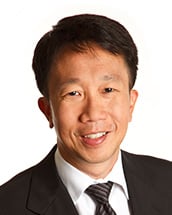The Cybersecurity Act 2018 will be amended to cover a wider range of entities, reporting obligations will be enhanced, and the CSA will be empowered to issue significant civil penalties.
In brief
The Singapore Parliament has passed the Cybersecurity (Amendment) Bill (“Bill“) amending the Cybersecurity Act 2018 (“Act“). The Act, which formerly only regulated Critical Information Infrastructure (CII), has been expanded significantly to cover a wider range of entities. Reporting obligations have been expanded. Finally, the penalty regime has also been revised, and the Cybersecurity Agency of Singapore (CSA) may now issue civil penalties in place of criminal penalties, with the maximum quantum of penalties significantly increased to up to 10% of the annual turnover of the entity in Singapore.
This is similar to the existing penalty regime under the Personal Data Protection Act 2012.
In more detail
The Bill was passed on 7 May 2024 after its Second Reading, following extensive consultation efforts undertaken by the CSA to engage stakeholders over two years.
Much of the Bill retains its original shape. For more details you can refer to our earlier client alerts of March 2024 and April 2024.
Some notable changes and obligations to note are as follows:
- The newly created category of “Foundational Digital Infrastructure” service providers, which will now be regulated under the Act and subject to obligations, standards of performance and codes of practice. The Bill includes two sectors in this category, namely cloud computing services and data centre facility services.
- The regulation of providers of essential services that use third-party-owned CII. This is a new category of regulated entity, intended to more appropriately address the case where providers of essential services use computing or virtualisation vendors. This was previously referred to with the terminology of “non-provider-owned CII” but has since been revised to “third-party-owned CII”.
- The expansion of reporting obligations for providers of essential services.
However, there have been some updates to the Bill from its draft iteration circulated during consultation. In particular, the penalty regime has been revised. Previously, compliance with obligations was enforced through criminal penalties on CII owners.
Under the new Section 37A of the Act, the CSA may now bring an action in court for civil penalties with the Public Prosecutor’s consent in place of any criminal penalties under Part 3, 3A, 3B, 3C or 3D of the Act. In making a recommendation to the Public Prosecutor, the CSA will consider a range of factors, including the risks created by the non-compliance, the egregiousness, and the facts of the case.
The criminal penalties under Part 3D of the Act, regulating Foundational Digital Infrastructure, can be a fine of up to SGD 200,000 or 10% of the annual turnover of the entity’s business in Singapore (Section 18H of the Act). This is noticeably higher than the existing penalties for CII, which is a fine only up to a maximum of SGD 100,000 (Section 10 of the Act).
The CSA is empowered to issue civil penalties with a range of maximum penalties for different offences, the highest of which would be up to SGD 500,000 or 10% of the annual turnover of the entity’s business in Singapore (Section 37A of the Act).
Key takeaways
With these changes, especially the steeper potential penalties, clients should continue to stay vigilant and monitor the landscape. Businesses should stay engaged with the cybersecurity discourse and stay informed regarding the latest cybersecurity developments. It is important to review security protocols, ensure compliance, and take proactive steps to protect your interests.
* * * * *
For further information and to discuss what this might mean for you, please get in touch with your usual Baker McKenzie contact.
* * * * *

© 2024 Baker & McKenzie.Wong & Leow. All rights reserved. Baker & McKenzie.Wong & Leow is incorporated with limited liability and is a member firm of Baker & McKenzie International, a global law firm with member law firms around the world. In accordance with the common terminology used in professional service organizations, reference to a “principal” means a person who is a partner, or equivalent, in such a law firm. Similarly, reference to an “office” means an office of any such law firm. This may qualify as “Attorney Advertising” requiring notice in some jurisdictions. Prior results do not guarantee a similar outcome.







